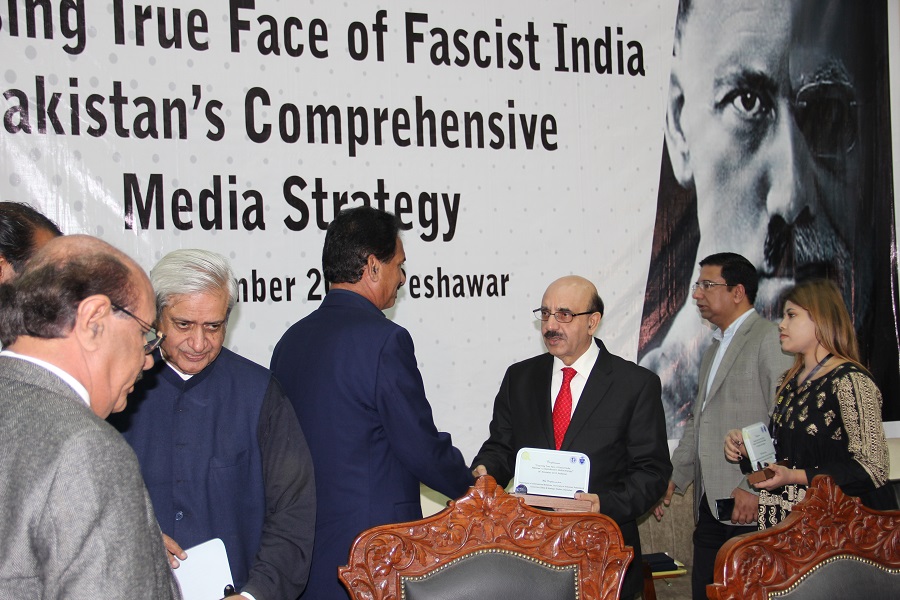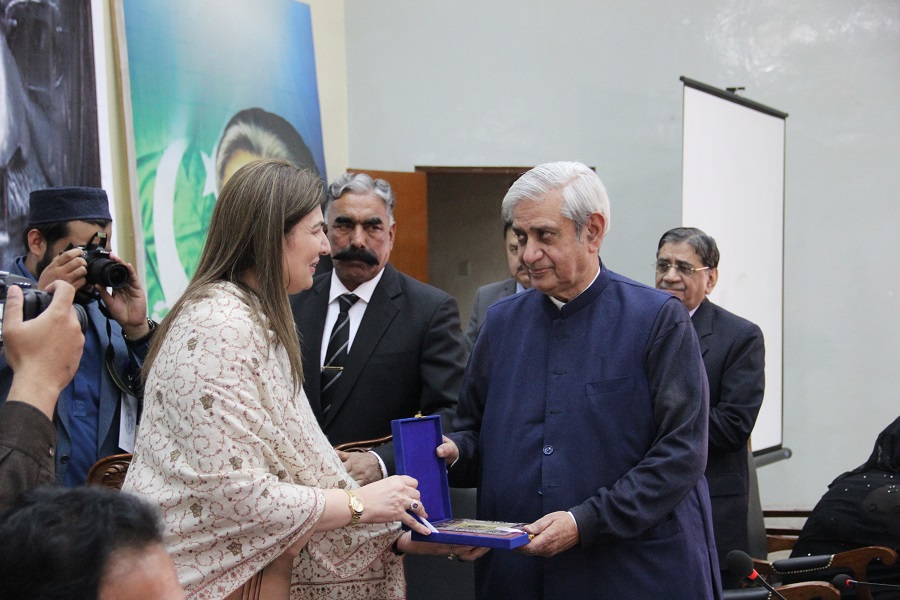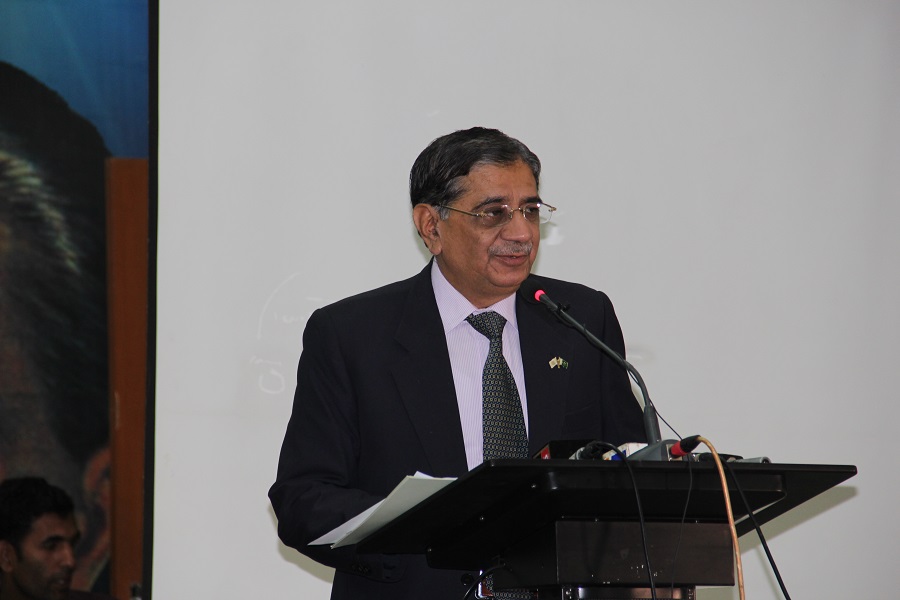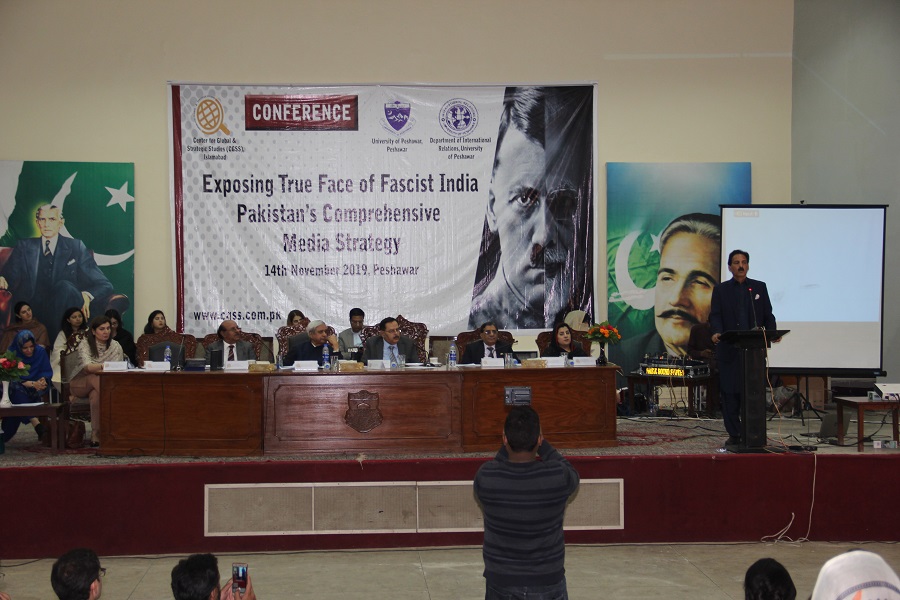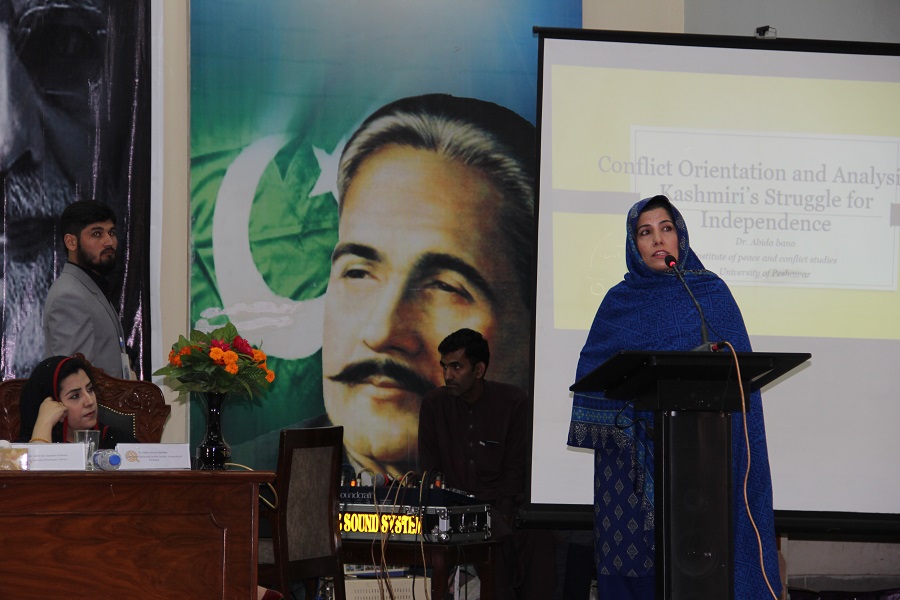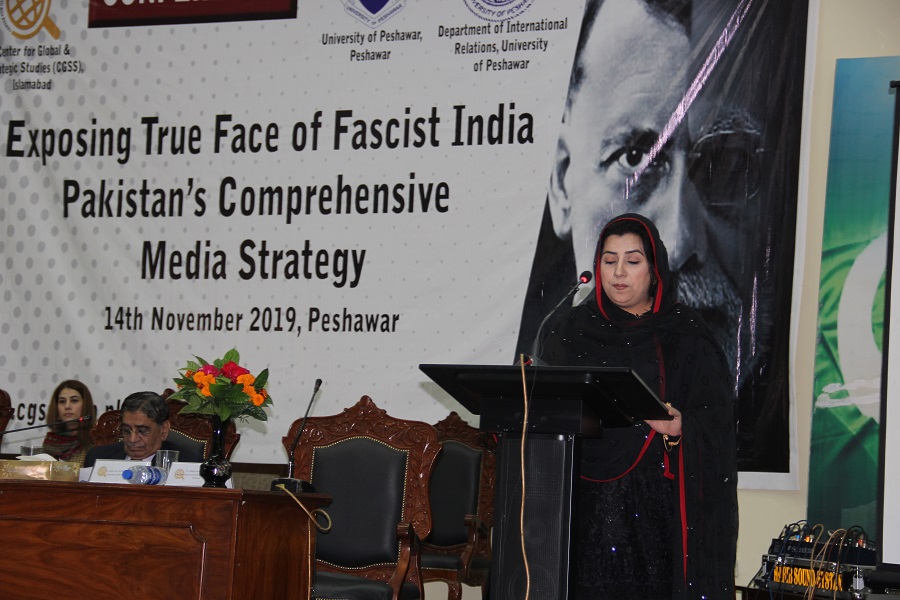Conference on "Exposing True Face of Fascist India – Pakistan’s Comprehensive Media Strategy"
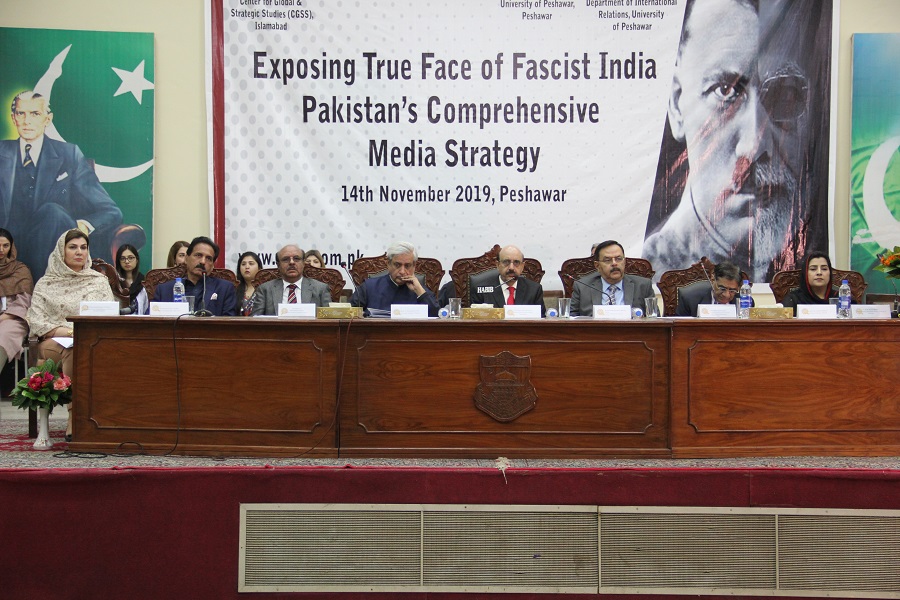
On 14th November 2019,
Center for Global & Strategic Studies (CGSS), Islamabad in collaboration with University of Peshawar, Peshawar organized a Conference on "Exposing True Face of Fascist India – Pakistan’s Comprehensive Media Strategy" at Shaykh Zayed Islamic Center, University of Peshawar.
The Conference commenced with the opening remarks by Dr. Minhas Majeed Marwat – Chairperson, Department of International Relations, University of Peshawar who stated that within the South Asian region, Indian Occupied Kashmir is the most militarized zone of the world and the nuclear flash point between Indian and Pakistan. Hindu Nationalist are curtailing the special status of IOK which BJP used as a vote bank.
Professor. Dr. Muhammad Asif Khan – Vice Chancellor, University of Peshawar in his welcome remarks stated that major change is happening in India and Hindutva is on the rise. Fascism is the emerging face of India and Bengalis have also been deprived of the citizenship. Due to the dispersed range of the ideology, it is the pressing issue which needs discussion.
His Excellency Sardar Masood Khan - President of Azad Jammu and Kashmir was the Chief Guest of the occasion. He stated that our forefathers sacrificed their lives for the Kashmiris. We must enhance our literacy regarding the Indian occupied Kashmir and must know all the facts and figures about Kashmir. Muslims are in majority in Kashmir and India wants to reduce the majority in minority and is capable of doing this. 237000 Muslims were killed by the RSS in past. Religious nationalist, Modi, revoked the special status of Kashmir through Article 370 and 35A which was his longstanding goal. United Nations and Amnesty International has turned a deaf year to the atrocities in Kashmir. He highly appreciated the role of Pakistan and the Government in supporting the Kashmir cause.
Syed Fakhar Imam - Member National Assembly, Chairman of the Special Committee on Kashmir presented speech on “Responsibility of Pakistani Media in Highlighting Kashmir Issue”. He stated that Benito Mussolini and Adolf Hitler dominated the world through the theory of Fascism, Narindera Moddi has the same doctrine of monopolistic ideology. Kashmir is going away from the hands of India. The human rights watch and United Nation’s Security Council are sitting silently observing the whole brutality of India. Indian organizations are not democratic the future of Kashmir should be decided by the people of Kashmir.
Pakistan was alleged to be epicenter of terrorism. The UNGA speech by Prime Minister Imran Khan was one of the major step forward in this endeavor although it is taken a long time and it is finally happening now.
Mr. Ashfaq Ahmed Gondal, Former Federal Secretary Information and Broadcasting stated that we have to make our country strong to solve our graves national and international issues and should advance our technologies we should devise market based education. Kashmir is a story of denied human rights. India itself went in UN and agreed on UN resolutions over Kashmir. In 1951 India included Article 370 but Modi revoked the Article in 2019.
Mr. Khusnood Ali Khan - President Council of Pakistan News Paper Editors presented speech on 5th Generation Warfare and the Kashmir Conflict. He elaborated the comprehensive media strategy and highlighted the positive role of media forum in exposing the Kashmir atrocities. He stated that media should be incorporated with the Government strategy towards the ongoing issues.
Dr. Abida, Faculty Member, Institute of Peace and Conflict Studies, University of Peshawar and Dr. Saima Gul – Assistant Professor, University of Peshawar, Pakistan also spoke at the Conference while elaborating the post Pulwama Indian brutalities and demonstrated the history of Kashmir conflict and media role toward the narrative building regarding Kashmir.
Major General Syed Khalid Amir Jaffery, HI (M), (Retd) – President CGSS concluded the Conference with his closing remarks.
Approximately 400 people including foreign policy experts, analysts, diplomats, media personalities, students, faculty members and representatives of public and private sector attended the Conference.


